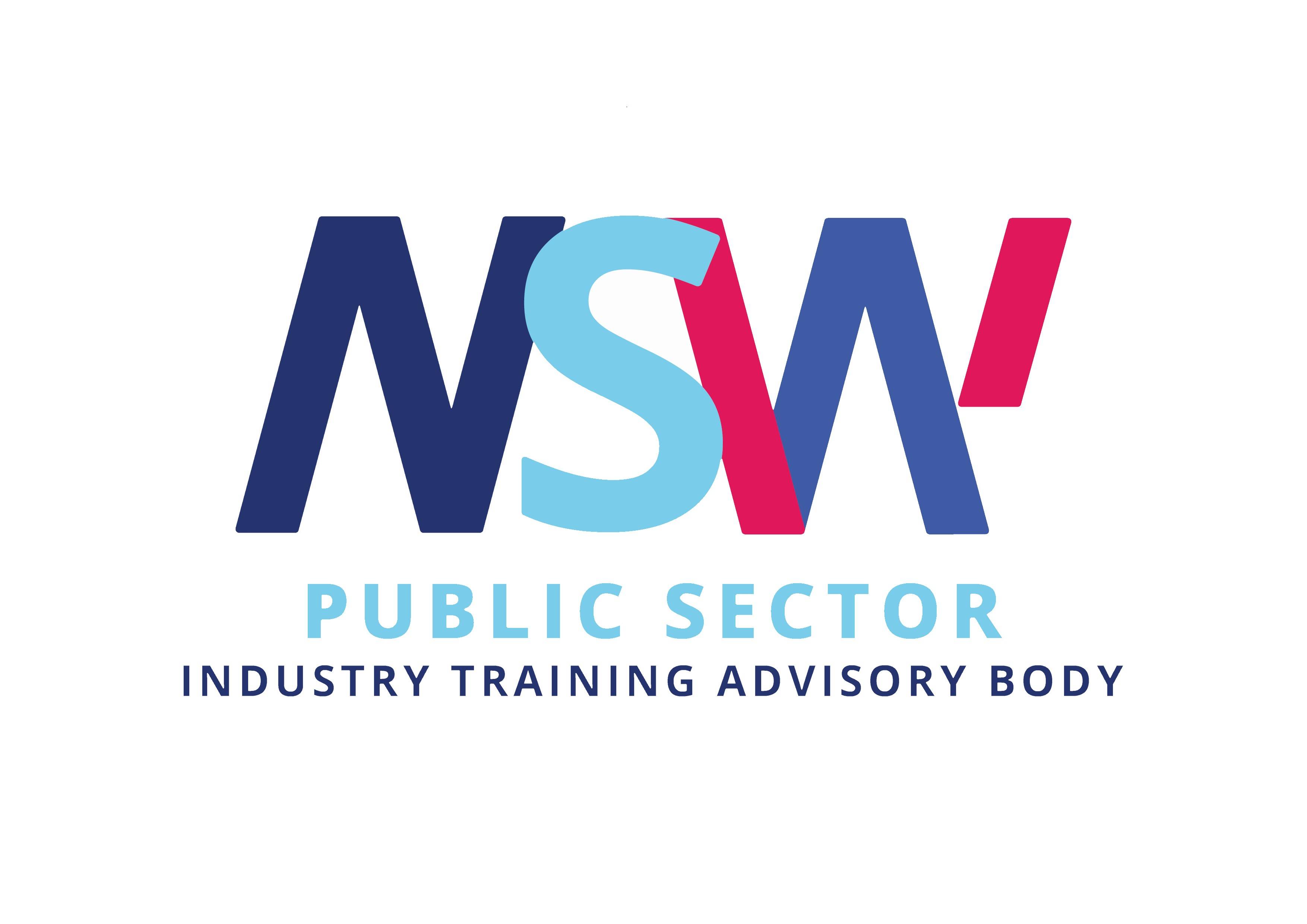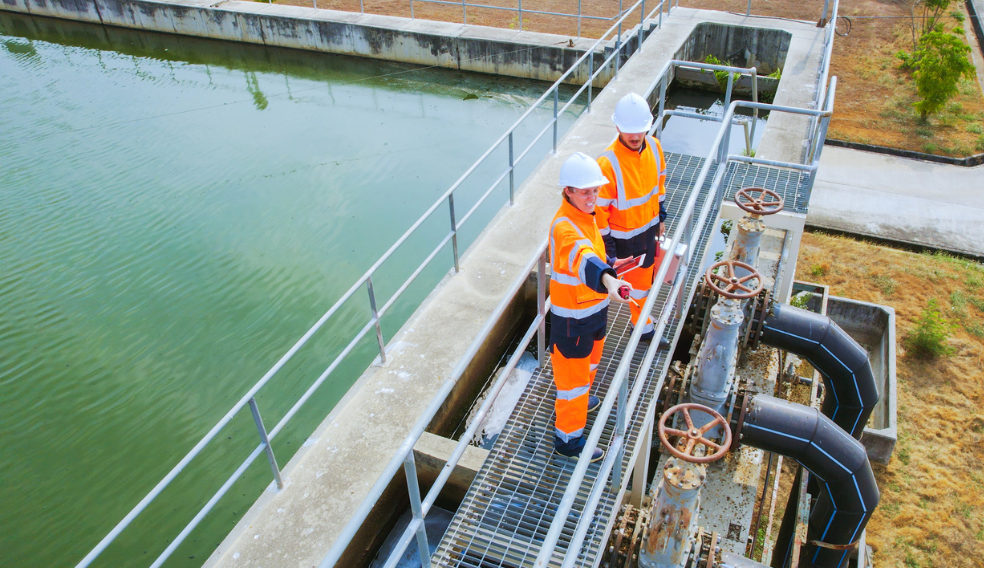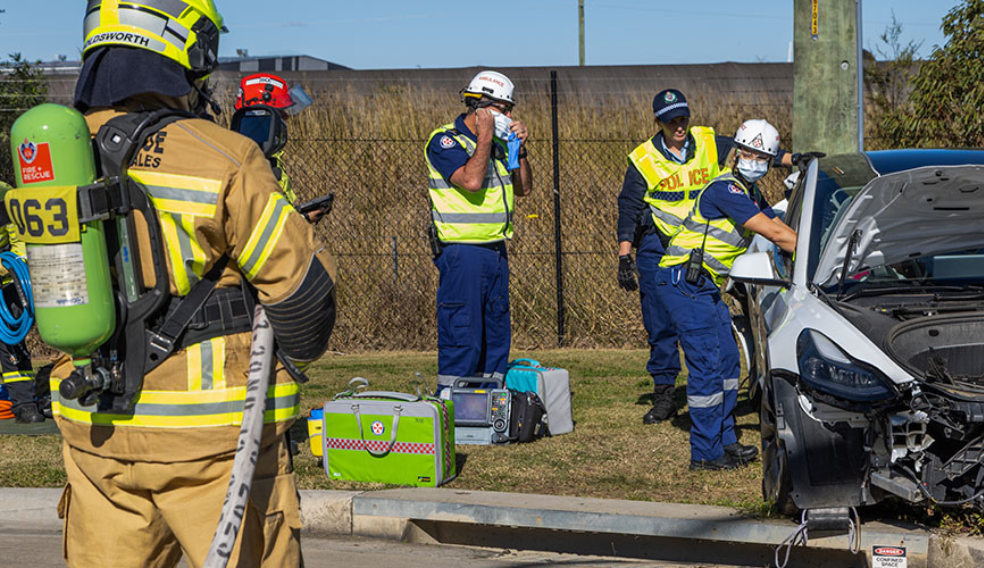Oct 23, 2024
NSW Public Sector ITAB October 2024 Newsletter
In this month's newsletter
- Register now for November online GTAN & WTAN Forums
- NSW Councils invited to apply for Trainee and Apprentice Grants
- Town Water Risk Reduction Program extended until 2028
- Continued investment in Adult Literacy and Numeracy programs
- NSW Productivity Commission recommends apprenticeship pathway reform
- TAFE NSW launches lithium battery training for emergency responders
- Acadiam buzz bus is on the move again
- National Skills Plan to Drive VET System Improvements
- Apprentice and Trainee numbers show diverging trends
- National Jobs and Skills Council Update
Register now for November online GTAN & WTAN Forums
Convened by the NSW Public Sector ITAB, these forums bring together the Government and Public Safety Skills and Training Network (GTAN) and Water Industry Skills and Training Network (WTAN) to exchange insights and information related to workforce development within the government, public safety, corrections, and water sectors across NSW.
Our next online network forums are scheduled for Tuesday 26 November 2024. They will feature guest speakers from various organisations who will share insights into emerging trends and innovative practices for skills and training. Participants will also receive updates on VET reforms and the latest funding initiatives in NSW.
Government and Public Safety Skills and Training Network (GTAN) Forum
(Includes all government agencies, Local Councils, Correctional Services, Public Safety, Police & Defence)
Date: 26 November 2024
Time: 10:00am - 11:30am (AEST)
Water Industry Skills and Training Network (WTAN) Forum
Date: 26 November 2024
Time: 2:00pm - 3:30pm (AEST)
NSW Councils invited to apply for Trainee and Apprentice Grants
The NSW Government has launched the $252.2 million Fresh Start program, offering councils across the state the opportunity to secure grants aimed at hiring more apprentices, trainees, and cadets. Under this initiative, the Fresh Start for Local Government Apprentices, Trainees, and Cadets Program will provide funding to support the wages of 1,300 new hires over the next six years, marking the state's largest direct investment in new apprenticeships in recent memory.
Local Government Minister Ron Hoenig emphasized that this program is designed to bolster council workforces by facilitating a 15% increase in staffing, particularly through roles that will positively impact communities across metropolitan, rural, and regional NSW. The program also seeks to address the trend of outsourcing, aiming to keep more jobs within councils.
The first round of grants, which will be allocated based on merit, is expected to see apprentices, trainees, and cadets beginning their roles by early 2025. All eligible councils are encouraged to apply before the November 8, 2024 deadline, with guidelines now available. This initiative is a key part of the Minns Labor Government's efforts to ensure long-term sustainability and strengthen local government services and infrastructure.
For more information, visit the Office of Local Government’s website.
Town Water Risk Reduction Program extended until 2028
The NSW Government has announced the extension of the Town Water Risk Reduction Program (TWRRP), a $32.8 million initiative designed to enhance the capabilities of Local Water Utilities (LWUs) and ensure regional communities have continued access to safe and reliable water services. The program, now extended until June 2028, addresses critical challenges in the water sector by providing technical and financial support to councils across the state.
Key elements of the three-year, $15 million extension include:
- Skills and Training Program: This new initiative focuses on addressing workforce shortages by offering targeted funding and training resources. It aims to establish competency standards for water operators, ultimately strengthening the water utility job market.
- Advanced Operational Support Program: The program will continue to provide grants to LWUs for upgrading water treatment infrastructure, improving the quality of drinking water across regional NSW.
- Funding Model Review: In collaboration with the sector, the government will address findings from the Productivity and Equality Commission’s review of funding models, particularly for Western NSW. The focus is on finding the most effective structures for delivering water and sewerage services.
This extension follows recommendations from the Joint Select Committee on Protecting Local Water Utilities from Privatisation. The NSW Government has expressed its commitment to keeping LWUs in public hands and ensuring water and sewerage assets remain publicly owned.
For more information, visit the DCCEEW website.
Continued investment in Adult Literacy and Numeracy programs
The NSW Government has introduced its Adult and Community Education (ACE) Strategy to provide essential language, literacy, numeracy, and digital skills training to disadvantaged learners, helping them become job ready. Supported by a $22.8 million federal investment over five years, this initiative is part of the National Skills Agreement aimed at improving foundational skills.
This funding supplements the NSW Government's existing $24.2 million annual commitment to the ACE sector, which offers flexible and supportive learning environments for individuals facing educational barriers. The strategy focuses on equipping learners with skills in IT, business services, and foundational subjects like English, numeracy, and digital literacy, all geared toward enhancing their employability.
Key initiatives include strengthening educator capabilities through recruitment and professional development, expanding learning pathways, and providing additional support for learners needing extra assistance. Outreach Support Officers will play a crucial role in connecting disadvantaged community members to educational opportunities, offering guidance to help them succeed.
The NSW Department of Education will annually evaluate and report on the progress and impact of the ACE Strategy.
The NSW ACE Strategy 2024 - 28 can be found here. Read the full article on the NSW Department of Education website.
NSW Productivity Commission recommends apprenticeship pathway reform
The NSW Productivity and Equality Commission has called for a re-evaluation of apprenticeship pathways to help alleviate the persistent labour shortages in the state's construction industry. This recommendation is part of the Commission's Review of Housing Supply Challenges and Policy Options for New South Wales.
The report highlights that apprenticeships remain the primary vocational education and training (VET) pathway for key construction roles. However, apprenticeship commencements and completions have been in decline, with a 22% drop in building and construction apprenticeship commencements in the year ending December 2023. Additionally, for every apprentice who completed their training, 1.6 withdrew.
The report suggests that modern economic and educational shifts have made apprenticeships less attractive, pointing out that they require three to four years of low-paid employment to achieve a Certificate IV qualification, while university degrees can be attained in the same timeframe with more consistent opportunities. The apprenticeship model is also vulnerable to economic downturns, where job loss can halt both employment and training.
To ensure a more sustainable workforce for the construction industry, the Commission recommends reforms that could make apprenticeship pathways more flexible. This includes separating the practical and theoretical components of training and allowing apprentices to access better-paying jobs in the industry during their training.
These reforms aim to create a more resilient apprenticeship system to support the ongoing demand for housing and address workforce challenges.
TAFE NSW launches lithium battery training for emergency responders
In October 2023, Premier Hon. Chris Minns announced that the NSW Government would fund the development of eight new Microskills programs, designed to prepare workers for roles in the renewable energy sector. The programs include topics like hydrogen, wind energy, and electric vehicles, with many more in development.
As part of this initiative, TAFE NSW, in partnership with Fire and Rescue NSW, has introduced the Electric Vehicle Incident and Emergency Response Microskill.
This training equips emergency responders to manage EV incidents and address the challenges associated with lithium batteries, focusing on:
- Hazards and risks of lithium-ion batteries
- Safe response practices during EV incidents
- Firefighting and rescue techniques for EV-related emergencies
- Best practices for the storage, transportation, and disposal of damaged EV batteries
The course will be offered at a fully discounted rate to employees and volunteers of Fire and Rescue NSW, NSW Police, NSW Ambulance, NSW Rural Fire Service and NSW State Emergency Service, VRA Rescue NSW, and incident response teams on major road networks and tunnels.
Minister for Emergency Services Jihad Dib said: “This free Microskill course is a great opportunity to learn how to handle electric vehicle incidents and the challenges unique to these.” (Media Release, 16 March 2024)
Acadiam buzz bus is on the move again
Acadiam’s goal is to make a paradigm shifting impact to those at the margins of their community. They do this by developing meaningful, holistic and engaging programs that build the understanding and skills needed to join the workforce using teaching and philosophy based on indigenous traditions. A tradition where an elder imparts life knowledge to their ‘apprentices’ through showing, teaching and taking them on journeys through stories.
At the core of Acadiam’s program is a Revelation Day that ‘walks in participants shoes’ to help them understand the ‘why’ of getting a job and then defining ‘what they can be good at’ before moving on to the ‘how’ of getting a job. This results in jobseekers who understand the end benefit for themselves, their family and their contribution to community through gaining and maintaining work.
Acadiam is activating their ‘buzz bus’ to explore opportunities in the Central Coast and Hunter region and is encouraging local employers to get involved in the events at the locations listed here:
- The Entrance - 4 November
- Cardiff - 5 November
- Muswellbrook - 11 November
- Cessnock - 12 November
- Wyong - 14 November
If local businesses have jobs available and are seeking entry-level supported workers reach out to Acadiam.
National Skills Plan to Drive VET System Improvements
Australia’s first National Skills Plan has been unveiled by the country’s skills and training ministers, setting out a collaborative vision for the future of the national vocational education and training (VET) system. This plan marks the initial phase of the five-year National Skills Agreement established between the Commonwealth, states, and territories in 2023.
A key feature of the plan is a new stewardship model, where governments will work together on national priorities. By November, state and territory governments will release their own action plans, followed by the publication of an Outcomes Framework by year-end. This framework will measure progress against national targets using a balanced scorecard approach—a first for the VET sector.
The plan focuses on eight strategic priorities:
- Promoting gender equality
- Closing the Gap for Indigenous Australians
- Supporting the Net Zero transition
- Strengthening essential care services
- Enhancing Australia’s sovereign capability and food security
- Increasing housing supply
- Reforming VET qualification regulations and quality standards
- Boosting digital and technology capabilities
Ministers highlighted that the National Skills Plan represents a significant shift in how governments will collaborate, emphasizing shared leadership, national planning, and evidence-based decision-making informed by industry expertise.
To find out more, access the National Skills Plan and the National Skills Plan Access Sheet.
Apprentice and Trainee numbers show diverging trends
New national data from the National Centre for Vocational Education Research (NCVER) reveals contrasting trends between trade and non-trade apprenticeships. The number of apprentices in trade occupations grew by nearly 11,000, reaching 238,765 in the first quarter of the year. In contrast, non-trade apprenticeships, also known as traineeships, fell by almost 500, dropping to 112,895, and showed a decline of 21% over the past year.
NCVER Managing Director John King highlighted the different paths trade and non-trade occupations are taking. While trade apprenticeships are down 4.3% from their June 2022 peak, they remain nearly 30% above pre-pandemic levels. On the other hand, non-trades have fallen 36.9% since their 2022 peak, which remains as about 20% above pre-pandemic figures.
The decline in non-trade apprenticeships has been most notable in clerical and administrative roles, with significant drops in positions such as Office and Practice Managers and General Clerks.
A positive development, however, is the increasing number of women entering traditionally male-dominated trades. Since 2019, the number of women apprentices in these fields has surged by nearly 80%, with a 115% increase in women training as electricians.
Skills and Training Minister Andrew Giles welcomed this shift, emphasizing the importance of challenging stereotypes and encouraging more women to pursue careers in trades.
Read NCVER’s full Apprentices and Trainees 2024: March Quarter Report.
National Jobs and Skills Council Update
Jobs and Skills Councils (JSCs) are a national network of industry owned and led organisations, designed to provide leadership in addressing national skills and training needs. They have been established to supply industry with a strong and strategic voice within the VET sector as part of broader government-led skills reform.
Activity related to key JSCs affiliated to Public Sector industries is outlined here:
Public Skills Australia (PSA): Public Skills Australia has a range of projects underway.
Find out more and/or provide feedback using the links below:
- Defence Public Affairs Qualifications
- Firefighting Appliance Pump Technicians
- Emergency Tree Operations
- DEFEXO Defence Explosive Ordnance
- POL Police Training Package Release 9.0
BuildSkills Australia (BSA): BuildSkills is conducting both Training Product and Research Projects which can be accessed using the links below:
- White Card Implementation
- Minimum Australian Context Gap Training for Migrant Plumbers
- VET Future Readiness Review
Water industry stakeholders should reach out to George Wall for any specific water sector issues.
Future Skills Organisation (FSO): FSO is conducting a range of Project which can be accessed using the following links:












